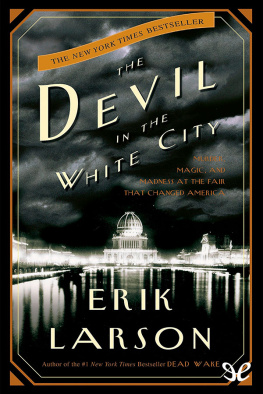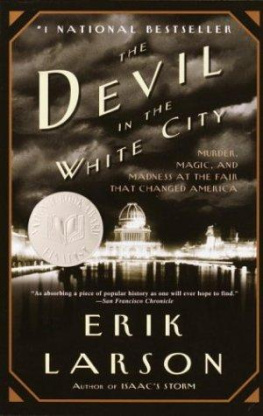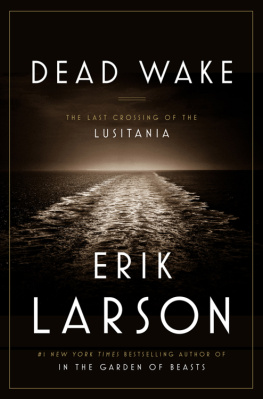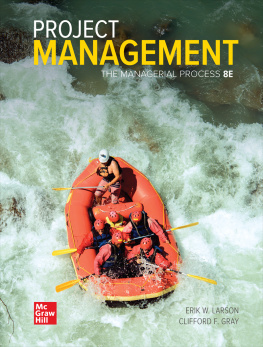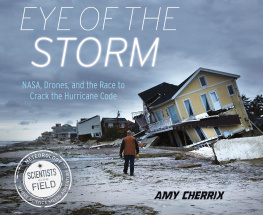Erik Larson - Isaacs Storm: A Man, a Time, and the Deadliest Hurricane in History
Here you can read online Erik Larson - Isaacs Storm: A Man, a Time, and the Deadliest Hurricane in History full text of the book (entire story) in english for free. Download pdf and epub, get meaning, cover and reviews about this ebook. year: 2000, publisher: Vintage Books, genre: Detective and thriller. Description of the work, (preface) as well as reviews are available. Best literature library LitArk.com created for fans of good reading and offers a wide selection of genres:
Romance novel
Science fiction
Adventure
Detective
Science
History
Home and family
Prose
Art
Politics
Computer
Non-fiction
Religion
Business
Children
Humor
Choose a favorite category and find really read worthwhile books. Enjoy immersion in the world of imagination, feel the emotions of the characters or learn something new for yourself, make an fascinating discovery.

- Book:Isaacs Storm: A Man, a Time, and the Deadliest Hurricane in History
- Author:
- Publisher:Vintage Books
- Genre:
- Year:2000
- Rating:4 / 5
- Favourites:Add to favourites
- Your mark:
- 80
- 1
- 2
- 3
- 4
- 5
Isaacs Storm: A Man, a Time, and the Deadliest Hurricane in History: summary, description and annotation
We offer to read an annotation, description, summary or preface (depends on what the author of the book "Isaacs Storm: A Man, a Time, and the Deadliest Hurricane in History" wrote himself). If you haven't found the necessary information about the book — write in the comments, we will try to find it.
Isaacs Storm: A Man, a Time, and the Deadliest Hurricane in History — read online for free the complete book (whole text) full work
Below is the text of the book, divided by pages. System saving the place of the last page read, allows you to conveniently read the book "Isaacs Storm: A Man, a Time, and the Deadliest Hurricane in History" online for free, without having to search again every time where you left off. Put a bookmark, and you can go to the page where you finished reading at any time.
Font size:
Interval:
Bookmark:
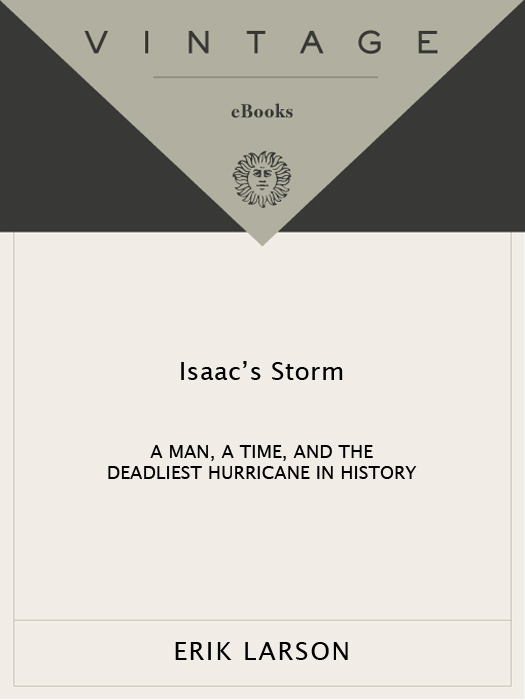
Masterful.A thoroughly engrossing account of the catastophe.
The News & Observer (Raleigh)
A terrifying account of the storms wrath.
The Seattle Times/Post-Intelligencer
Larsons vivid detail and storytelling ability go beyond our fascination with bizarre weather and show how natural disasters can change the course of history.
The Hartford Courant
Richly imagined and prodigiously researched, [Isaacs Storm] pulls readers into the eye of the hurricane.
The New York Times
This brilliant exploration of the hurricanes deadly force is set against the human drama of Isaac Monroe Cline. Long after you lift your eyes from the final page, this book will bring you back to its portraits of a city under siege, and the storms survivors and victims.
The Times-Picayune
Drawing from public records and the personal accounts of survivors, Larson tracks in vivid detail both the path of the hurricane and the trajectory of Isaac Clines carrer.
The Atlanta Journal-Constitution
Larson offers Dantesque images of trees, street lamps, houses and furnishings being turned into projectiles of wind-whipped walls of water pressing the life out of entire city blocks.
The Plain Dealer
In all the books about disasters, few have assembled so many nuanced details into the kind of flood that Larson releases when the storm surges.
San Francisco Chronicle
The Naked Consumer
Lethal Passage
ERIK LARSON
I SAACS S TORM
Erik Larson, a contributor to Time magazine, is the author of The Naked Consumer and Lethal Passage. His work has appeared in The Atlantic Monthly, Harpers, The New Yorker, and other national magazines. He lives in Seattle.
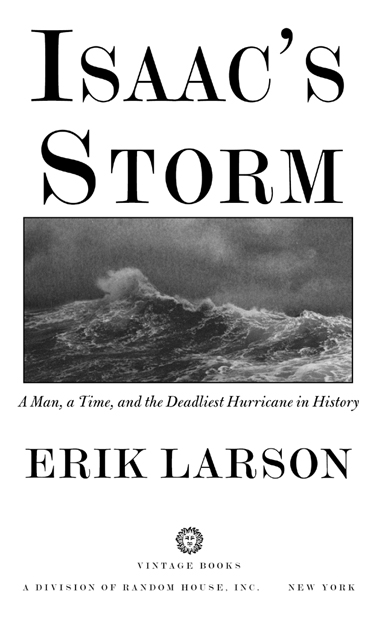
An excerpt from
In the Garden of Beasts
Now available from Crown Publishers
CHAPTER 1
Means of Escape
T he telephone call that forever changed the lives of the Dodd family of Chicago came at noon on Thursday, June 8, 1933, as William E. Dodd sat at his desk at the University of Chicago.
Now chairman of the history department, Dodd had been a professor at the university since 1909, recognized nationally for his work on the American South and for a biography of Woodrow Wilson. He was sixty-four years old, trim, five feet eight inches tall, with blue-gray eyes and light brown hair. Though his face at rest tended to impart severity, he in fact had a sense of humor that was lively, dry, and easily ignited. He had a wife, Martha, known universally as Mattie, and two children, both in their twenties. His daughter, also named Martha, was twenty-four years old; his son, William Jr.Billwas twenty-eight.
By all counts they were a happy family and a close one. Not rich by any means, but well off, despite the economic depression then gripping the nation. They lived in a large house at 5757 Blackstone Avenue in Chicagos Hyde Park neighborhood, a few blocks from the university. Dodd also ownedand every summer tendeda small farm in Round Hill, Virginia, which, according to a county survey, had 386.6 acres, more or less, and was where Dodd, a Jeffersonian democrat of the first stripe, felt most at home, moving among his twenty-one Guernsey heifers; his four geldings, Bill, Coley, Mandy, and Prince; his Farmall tractor; and his horse-drawn Syracuse plows. He made coffee in a Maxwell House can atop his old wood-burning stove. His wife was not as fond of the place and was more than happy to let him spend time there by himself while the rest of the family remained behind in Chicago. Dodd named the farm Stoneleigh, because of all the rocks strewn across its expanse, and spoke of it the way other men spoke of first loves. The fruit is so beautiful, almost flawless, red and luscious, as we look at it, the trees still bending under the weight of their burden, he wrote one fine night during the apple harvest. It all appeals to me.
Though generally not given to clich, Dodd described the telephone call as a sudden surprise out of a clear sky. This was, however, something of an exaggeration. Over the preceding several months there had been talk among his friends that one day a call like this might come. It was the precise nature of the call that startled Dodd, and troubled him.
FOR SOME TIME NOW , Dodd had been unhappy in his position at the university. Though he loved teaching history, he loved writing it more, and for years he had been working on what he expected would be the definitive recounting of early southern history, a four-volume series that he called The Rise and Fall of the Old South, but time and again he had found his progress stymied by the routine demands of his job. Only the first volume was near completion, and he was of an age when he feared he would be buried alongside the unfinished remainder. He had negotiated a reduced schedule with his department, but as is so often the case with such artificial ententes, it did not work in the manner he had hoped. Staff departures and financial pressures within the university associated with the Depression had left him working just as hard as ever, dealing with university officials, preparing lectures, and confronting the engulfing needs of graduate students. In a letter to the universitys Department of Buildings and Grounds dated October 31, 1932, he pleaded for heat in his office on Sundays so he could have at least one day to devote to uninterrupted writing. To a friend he described his position as embarrassing.
Adding to his dissatisfaction was his belief that he should have been further along in his career than he was. What had kept him from advancing at a faster clip, he complained to his wife, was the fact that he had not grown up in a life of privilege and instead had been compelled to work hard for all that he achieved, unlike others in his field who had advanced more quickly. And indeed, he had reached his position in life the hard way. Born on October 21, 1869, at his parents home in the tiny hamlet of Clayton, North Carolina, Dodd entered the bottom stratum of white southern society, which still adhered to the class conventions of the antebellum era. His father, John D. Dodd, was a barely literate subsistence farmer; his mother, Evelyn Creech, was descended from a more exalted strain of North Carolina stock and deemed to have married down. The couple raised cotton on land given to them by Evelyns father and barely made a living. In the years after the Civil War, as cotton production soared and prices sank, the family fell steadily into debt to the towns general store, owned by a relative of Evelyns who was one of Claytons three men of privilegehard men, Dodd called them: traders and aristocratic masters of their dependents!
Dodd was one of seven children and spent his youth working the familys land. Although he saw the work as honorable, he did not wish to spend the rest of his life farming and recognized that the only way a man of his lowly background could avoid this fate was by gaining an education. He fought his way upward, at times focusing so closely on his studies that other students dubbed him Monk Dodd. In February 1891 he entered Virginia Agricultural and Mechanical College (later Virginia Tech). There too he was a sober, focused presence. Other students indulged in such pranks as painting the college presidents cow and staging fake duels so as to convince freshmen that they had killed their adversaries. Dodd only studied. He got his bachelors degree in 1895 and his masters in 1897, when he was twenty-six years old.
Font size:
Interval:
Bookmark:
Similar books «Isaacs Storm: A Man, a Time, and the Deadliest Hurricane in History»
Look at similar books to Isaacs Storm: A Man, a Time, and the Deadliest Hurricane in History. We have selected literature similar in name and meaning in the hope of providing readers with more options to find new, interesting, not yet read works.
Discussion, reviews of the book Isaacs Storm: A Man, a Time, and the Deadliest Hurricane in History and just readers' own opinions. Leave your comments, write what you think about the work, its meaning or the main characters. Specify what exactly you liked and what you didn't like, and why you think so.


